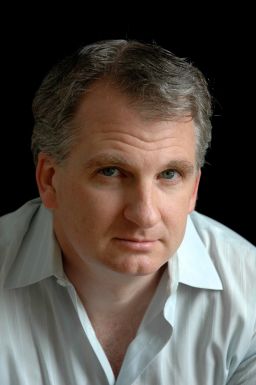Editor’s Note: Timothy Snyder is the Levin Professor of History at Yale University and the author of two books about the Holocaust, Bloodlands and Black Earth. His most recent book is The Road to Unfreedom: Russia, Europe, America. The views expressed in this commentary are his own. View more opinion on CNN.
In my time writing and speaking about the Holocaust, I have only met a few people who have changed their politics because of what they learned about the past. Usually, it is the other way around – people adjust history to match their worldviews.
Yet history is always surprising and troubling, and the history of the Holocaust most especially so. It demonstrates what is possible. People not so very different from us not so very long ago murdered six million Jewish children, women and men in about four years.

It is reasonable to disagree about the lessons of the Holocaust. But what the Holocaust cannot be is a taboo to be invoked against critics of the status quo. If the meaning of the Holocaust is that everything is fine in one’s own country until six million Jews are murdered there, then the Holocaust has no meaning.
The recent remarks of Republican Rep. Liz Cheney show how memory is twisted to justify the status quo. Wishing to criticize Democratic Rep. Alexandria Ocasio-Cortez, who referred to American detention centers along the southern border as “concentration camps,” Cheney claimed the authority of “actual history.” The fact of the Holocaust, she thinks, means that no one today can invoke concentration camps without dishonoring Jewish victims.
Cheney has her history wrong in two respects.
The first mistake is to limit the history of concentration camps to the Nazi regime. As so often in the history of political atrocity, the concentration camp was an innovation of European empires applied to local peoples.
In the 1920s, the Soviet Union took the practice to new extremes, building the largest concentration camp system ever known: the Gulag. The first Nazi camps, established in 1933, were first used to punish the political left. By the late 1930s, five German concentration camps held about 20,000 people. The Soviet Gulag held more than a million at the time.
If we think only the Nazis had concentration camps, how can we talk about the Soviet Union? The same holds for the most powerful Communist Party still in existence, the one that rules China today. According to US Department of Defense, as many as three million Chinese are currently held in concentration camps as Uyghur Muslims. Again, without the term “concentration camps,” it is hard to know how we can see the reality.
The second mistake is to treat concentration camps as synonymous with the Holocaust. The huge majority of Jews murdered in the Holocaust never saw a concentration camp.
Beginning in the summer of 1941, the Jews of Eastern Europe were murdered by gunfire over pits, usually close to their homes. Bullets killed more Jews than any other method.
Beginning in 1942, Jews were murdered in large numbers by forced exposure to the exhaust fumes of internal combustion engines. The sites where they were killed were not camps, since no one spent the night. They are better understood as death facilities, or death factories.
At Auschwitz, Jews were murdered by exposure to Zyklon B, a hydrogen cyanide gas, at a death facility that was adjacent to a concentration camp. After bullets and automobile exhaust, hydrogen cyanide was the third most important method of killing.
Of course, Jews did die in horrible conditions in concentration camps, especially at the end of the war. But concentration camps were never, in theory or in practice, the main way that Jews were murdered.
The connection between the concentration camp and the Holocaust is narrow, specific and worth recalling. A concentration camp is a zone of lawlessness, a legal black hole. It allows for experiments that transform the imprisoned and those that imprison, as well as the society that comes to take lawless zones for granted. It makes the unthinkable thinkable.
This transformation within lawless zones can lead in various directions: to planned death by exhaustion of the weak, as in the Soviet case; or to the training of future mass murderers, in the German case.
The establishment of German concentration camps in 1933 did not lead directly to the Holocaust. What it did was provide eight years of training in the application of punishment according to ideas of race rather than law. The guards were the SS, members of the institution that later carried out the Holocaust and other mass killings in the east. These atrocities were possible after 1941, where SS men were able to rule large eastern European territories as if they were lawless zones.
Personally, I don’t think I would call American detention centers “concentration camps,” as Rep. Ocasio-Cortez does. They are not excluded, in principle, from the rule of law. But I do see some risks and a good deal of injustice.
We need the history of concentration camps to understand the risks of maintaining such facilities. US Immigration and Customs Enforcement holds more people in detention centers now than Germany held in its camps when the Second World War began. In paying companies to run detention centers, we are creating the perverse incentives that were also present in German camps and ghettos. In detaining people without quick and speedy trials, we violate international law. In denying detainees due process, we question our own Constitution.
In maintaining these facilities, we are transforming ourselves into what we imagine we could never become.
History is not a mirror that tells us that we are the fairest of them all. History is awkward and hard to grasp – flotsam and jetsam on a stormy sea. It is what we have to hold on to.


